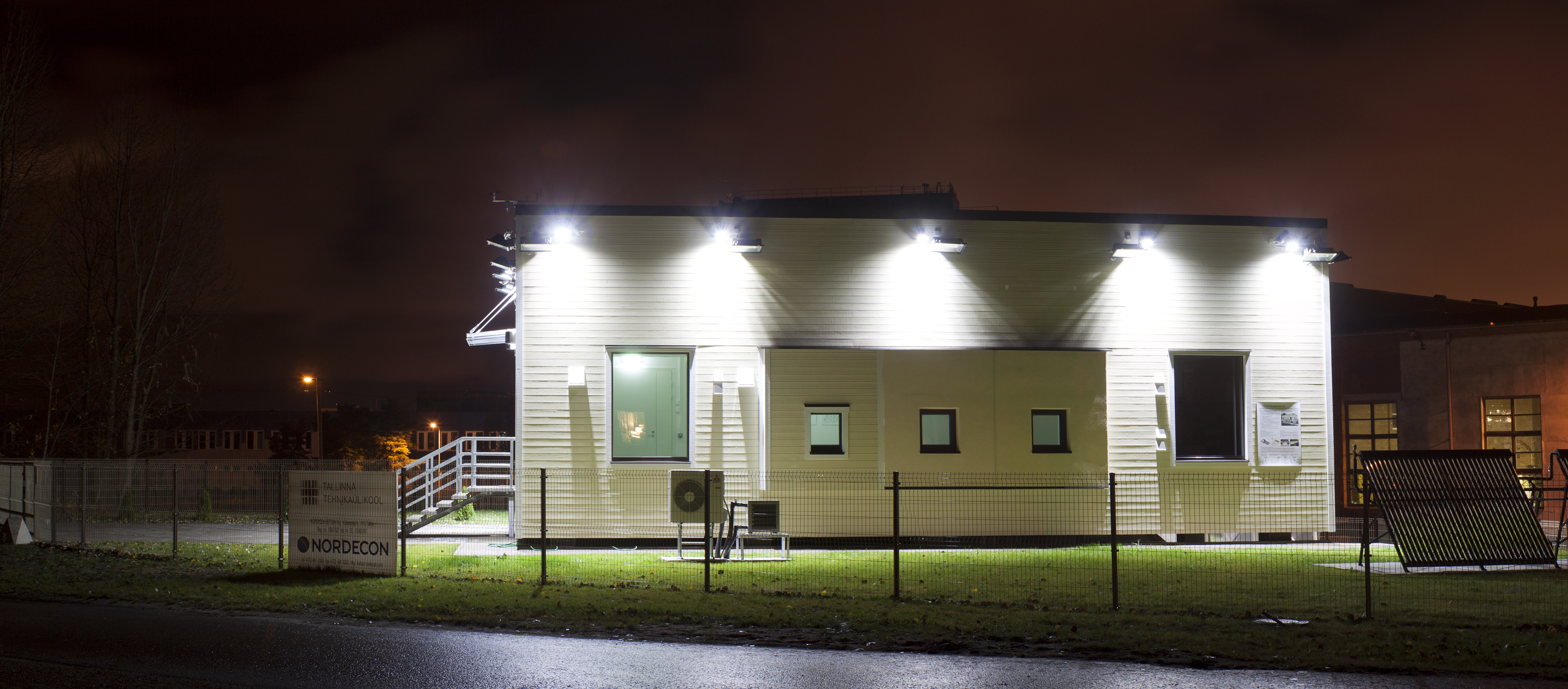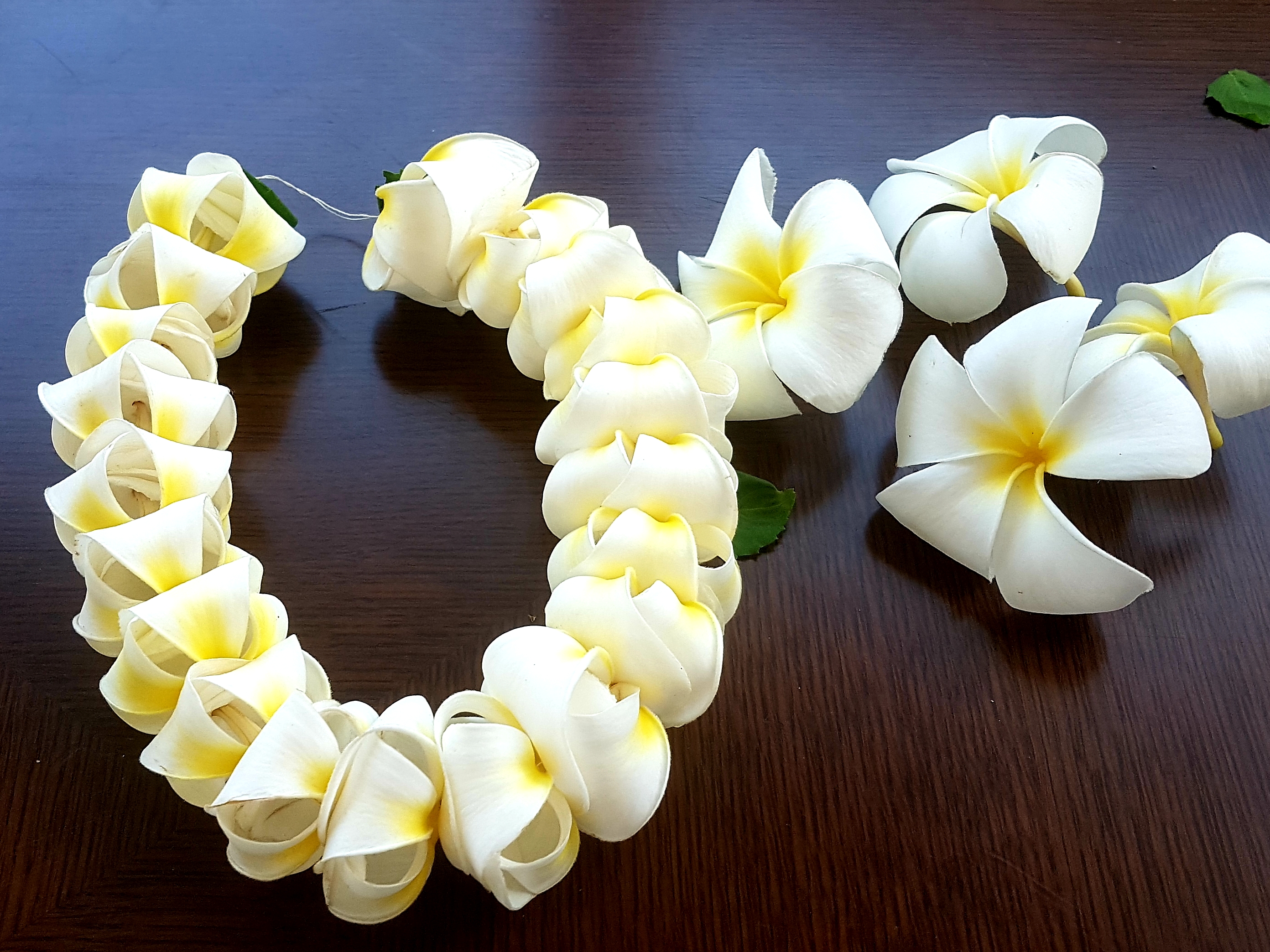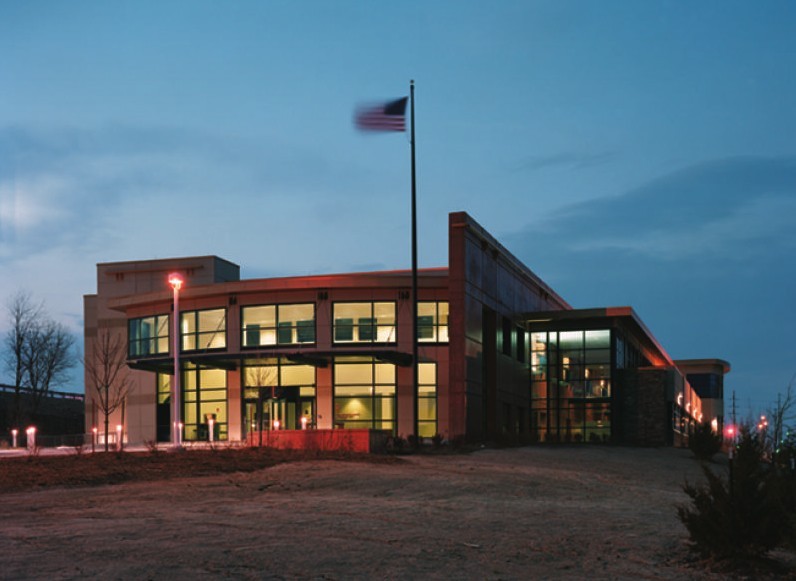|
Phipps Conservatory
Phipps Conservatory and Botanical Gardens is a botanical garden set in Schenley Park, Pittsburgh, Pennsylvania, United States. It is a City of Pittsburgh historic landmark and is listed on the National Register of Historic Places. The gardens were founded in 1893 by steel and real-estate magnate Henry Phipps Jr. as a gift to the City of Pittsburgh. Its purpose is to educate and entertain the people of Pittsburgh with formal gardens (Roman, English, etc.) and various species of exotic plants (palm trees, succulents, bonsai, orchids, etc.). Currently, the facilities house elaborate gardens within the fourteen room conservatory itself and on the adjoining grounds. In addition to its primary flora exhibits, the sophisticated glass and metalwork of the Lord & Burnham conservatory offers an interesting example of Victorian greenhouse architecture. Phipps is one of the "greenest" facilities in the world. The entrance pavilion of the Phipps Conservatory has silver-level LEED certificat ... [...More Info...] [...Related Items...] OR: [Wikipedia] [Google] [Baidu] |
Pittsburgh, Pennsylvania
Pittsburgh ( ) is a city in the Commonwealth of Pennsylvania, United States, and the county seat of Allegheny County. It is the most populous city in both Allegheny County and Western Pennsylvania, the second-most populous city in Pennsylvania behind Philadelphia, and the 68th-largest city in the U.S. with a population of 302,971 as of the 2020 census. The city anchors the Pittsburgh metropolitan area of Western Pennsylvania; its population of 2.37 million is the largest in both the Ohio Valley and Appalachia, the second-largest in Pennsylvania, and the 27th-largest in the U.S. It is the principal city of the greater Pittsburgh–New Castle–Weirton combined statistical area that extends into Ohio and West Virginia. Pittsburgh is located in southwest Pennsylvania at the confluence of the Allegheny River and the Monongahela River, which combine to form the Ohio River. Pittsburgh is known both as "the Steel City" for its more than 300 steel-related businesses and ... [...More Info...] [...Related Items...] OR: [Wikipedia] [Google] [Baidu] |
Zero-energy Building
A Zero Energy Building (ZEB), also known as a Net Zero Energy (NZE) building, is a building with net zero energy consumption, meaning the total amount of energy used by the building on an annual basis is equal to the amount of renewable energy created on the site or in other definitions by renewable energy sources offsite, using technology such as heat pumps, high efficiency windows and insulation, and solar panels. The goal is that these buildings contribute less overall greenhouse gas to the atmosphere during operations than similar non-ZNE buildings. They do at times consume non-renewable energy and produce greenhouse gases, but at other times reduce energy consumption and greenhouse gas production elsewhere by the same amount. The development of zero-energy buildings is encouraged by the desire to have less of an impact on the environment, and by tax breaks and savings on energy costs that make zero-energy buildings financially viable. Terminology tends to vary between co ... [...More Info...] [...Related Items...] OR: [Wikipedia] [Google] [Baidu] |
Celadon
''Celadon'' () is a term for pottery denoting both wares glazed in the jade green celadon color, also known as greenware or "green ware" (the term specialists now tend to use), and a type of transparent glaze, often with small cracks, that was first used on greenware, but later used on other porcelains. Celadon originated in China, though the term is purely European, and notable kilns such as the Longquan kiln in Zhejiang province are renowned for their celadon glazes. Celadon production later spread to other parts of East Asia, such as Japan and Korea as well as Southeast Asian countries such as Thailand. Eventually, European potteries produced some pieces, but it was never a major element there. Finer pieces are in porcelain, but both the color and the glaze can be produced in stoneware and earthenware. Most of the earlier Longquan celadon is on the border of stoneware and porcelain, meeting the Chinese but not the European definitions of porcelain. For many centuries ... [...More Info...] [...Related Items...] OR: [Wikipedia] [Google] [Baidu] |
Chandelier
A chandelier (; also known as girandole, candelabra lamp, or least commonly suspended lights) is a branched ornamental light fixture designed to be mounted on ceilings or walls. Chandeliers are often ornate, and normally use incandescent light bulbs, though some modern designs also use fluorescent lamps and recently LEDs. Classic chandeliers have arrays of hanging crystal prisms to illuminate a room with refracted light, while contemporary chandeliers assume a more minimalist design that does not contain prisms and illuminate a room with direct light from the lamps, sometimes also equipped with translucent glass covering each lamp. Modern chandeliers have a more modernized design that uses LEDs, and combines the elements of both classic and contemporary designs; some are also equipped with refractive crystal prisms or small mirrors. Chandeliers are distinct from pendant lights, as they usually consist of multiple lamps and hang in branched frames, whereas pendan ... [...More Info...] [...Related Items...] OR: [Wikipedia] [Google] [Baidu] |
Tacoma, Washington
Tacoma ( ) is the county seat of Pierce County, Washington, United States. A port city, it is situated along Washington's Puget Sound, southwest of Seattle, northeast of the state capital, Olympia, Washington, Olympia, and northwest of Mount Rainier National Park. The city's population was 219,346 at the time of the 2020 United States census, 2020 census. Tacoma is the second-largest city in the Puget Sound area and the List of municipalities in Washington, third-largest in the state. Tacoma also serves as the center of business activity for the South Sound region, which has a population of about 1 million. Tacoma adopted its name after the nearby Mount Rainier, called wikt:Tacoma, təˡqʷuʔbəʔ in the Lushootseed, Puget Sound Salish dialect. It is locally known as the "City of Destiny" because the area was chosen to be the western terminus of the Northern Pacific Railroad in the late 19th century. The decision of the railroad was influenced by Tacoma's neighboring deep-wat ... [...More Info...] [...Related Items...] OR: [Wikipedia] [Google] [Baidu] |
Dale Chihuly
Dale Chihuly () (born September 20, 1941) is an American glass artist and entrepreneur. He is best known in the field of blown glass, "moving it into the realm of large-scale sculpture". Early life Dale Patrick Chihuly was born on September 20, 1941, in Tacoma, Washington. His parents were George and Viola Chihuly; his paternal grandfather was born in Slovakia. In 1956, his older brother and only sibling George died in a Navy aviation training accident in Pensacola, Florida. Two years later in 1958, Chihuly's father died of a heart attack at the age of 51. Chihuly had no interest in continuing his formal education after graduating from Woodrow Wilson High School in 1959. However, at his mother's urging, he enrolled at the College of Puget Sound. A year later, he transferred to the University of Washington in Seattle to study interior design. In 1961, he joined the Delta Kappa Epsilon fraternity (Kappa Epsilon chapter), and the same year he learned how to melt and fuse glas ... [...More Info...] [...Related Items...] OR: [Wikipedia] [Google] [Baidu] |
Frangipani
''Plumeria'' (), known as frangipani, is a genus of flowering plants in the subfamily Rauvolfioideae, of the family Apocynaceae. Most species are deciduous shrubs or small trees. The species variously are endemic to Mexico, Central America, and the Caribbean, and as far south as Brazil and north as Florida (United States), but are sometimes grown as cosmopolitan ornamentals in warm regions. Common names for plants in the genus vary widely according to region, variety, and whim, but frangipani or variations on that theme are the most common. Plumeria is also used as a common name, especially in horticultural circles. Description ''Plumeria'' flowers are highly fragrant, yet yield no nectar. Their scent is strongest at night, to lure sphinx moths into pollinating them by transferring pollen from flower to flower in their fruitless search for nectar. Insects or human pollination can help create new varieties of plumeria. Plumeria trees from cross-pollinated seeds may show cha ... [...More Info...] [...Related Items...] OR: [Wikipedia] [Google] [Baidu] |
Phipps Conservatory 36
Phipps may refer to: * Phipps (surname) * Phipps, Wisconsin, an unincorporated community *Phipps Bridge tram stop Phipps Bridge tram stop is a stop on the Tramlink service in the London Borough of Merton. The stop is named after Phipps Bridge Road, an adjacent residential street. The tram stop consists of a single island platform. Immediately to the west ..., a halt on the Tramlink service in the London Borough of Merton * Phipps Conservatory and Botanical Gardens, buildings and grounds set in Schenley Park, Pittsburgh, Pennsylvania * Phipps NBC, a brewing company based in Northampton, England * Phipps Plaza, a mall in Buckhead, Atlanta {{disambiguation ... [...More Info...] [...Related Items...] OR: [Wikipedia] [Google] [Baidu] |
Green Building
Green building (also known as green construction or sustainable building) refers to both a structure and the application of processes that are environmentally responsible and resource-efficient throughout a building's life-cycle: from planning to design, construction, operation, maintenance, renovation, and demolition. This requires close cooperation of the contractor, the architects, the engineers, and the client at all project stages.Yan Ji and Stellios Plainiotis (2006): Design for Sustainability. Beijing: China Architecture and Building Press. The Green Building practice expands and complements the classical building design concerns of economy, utility, durability, and comfort. Green building also refers to saving resources to the maximum extent, including energy saving, land saving, water saving, material saving, etc., during the whole life cycle of the building, protecting the environment and reducing pollution, providing people with healthy, comfortable and efficient u ... [...More Info...] [...Related Items...] OR: [Wikipedia] [Google] [Baidu] |
Non-profit Organization
A nonprofit organization (NPO) or non-profit organisation, also known as a non-business entity, not-for-profit organization, or nonprofit institution, is a legal entity organized and operated for a collective, public or social benefit, in contrast with an entity that operates as a business aiming to generate a profit for its owners. A nonprofit is subject to the non-distribution constraint: any revenues that exceed expenses must be committed to the organization's purpose, not taken by private parties. An array of organizations are nonprofit, including some political organizations, schools, business associations, churches, social clubs, and consumer cooperatives. Nonprofit entities may seek approval from governments to be tax-exempt, and some may also qualify to receive tax-deductible contributions, but an entity may incorporate as a nonprofit entity without securing tax-exempt status. Key aspects of nonprofits are accountability, trustworthiness, honesty, and openness to ev ... [...More Info...] [...Related Items...] OR: [Wikipedia] [Google] [Baidu] |
Pittsburgh History And Landmarks Foundation
The Pittsburgh History & Landmarks Foundation (PHLF) is a nonprofit organization founded in 1964 to support the preservation of historic buildings and neighborhoods in Pittsburgh, Pennsylvania, USA. In 1966, PHLF established the Revolving Fund for Preservation with a $100,000 grant from the Sarah Scaife Foundation. PHLF used the grant to purchase, restore and renovate historic inner-city properties primarily in the North Side and South Side neighborhoods of Pittsburgh, which were rented or sold to low- and moderate-income families. Allegheny County Survey PHLF was the first historic preservation group in the nation to undertake a countywide survey of architectural landmarks, which Co-Founders Arthur P. Ziegler Jr. and James D. Van Trump did in 1965. The foundation's historic plaque program was begun in 1968, and since that time it has awarded over 500 plaques to designate significant historical structures within Allegheny County. Hamnett Place preservation and restoration ... [...More Info...] [...Related Items...] OR: [Wikipedia] [Google] [Baidu] |
List Of Pittsburgh History And Landmarks Foundation Historic Landmarks
Pittsburgh History and Landmarks Foundation (PHLF) Historic Landmark plaque program was begun in 1968 in order to identify architecturally significant structures as well as significant pieces of Pittsburgh's local heritage throughout Allegheny County. Nominations are reviewed by the private non-profit foundation's Historic Plaque Designation Committee composed of trustees, architectural historians, and citizens. These designations are not to be confused with City of Pittsburgh historic designations. Beginning in 2010, the committee expanded its program to consider applications for historic status from counties surrounding Allegheny, extending its reach to a 250-mile radius from the city, as long as the site has a connection to the greater Pittsburgh region. Historic designation by the foundation does not protect the building from alteration or demolition. Structures awarded the designation typically have aluminum or bronze plaques affixed to their exterior that signify their status. ... [...More Info...] [...Related Items...] OR: [Wikipedia] [Google] [Baidu] |







